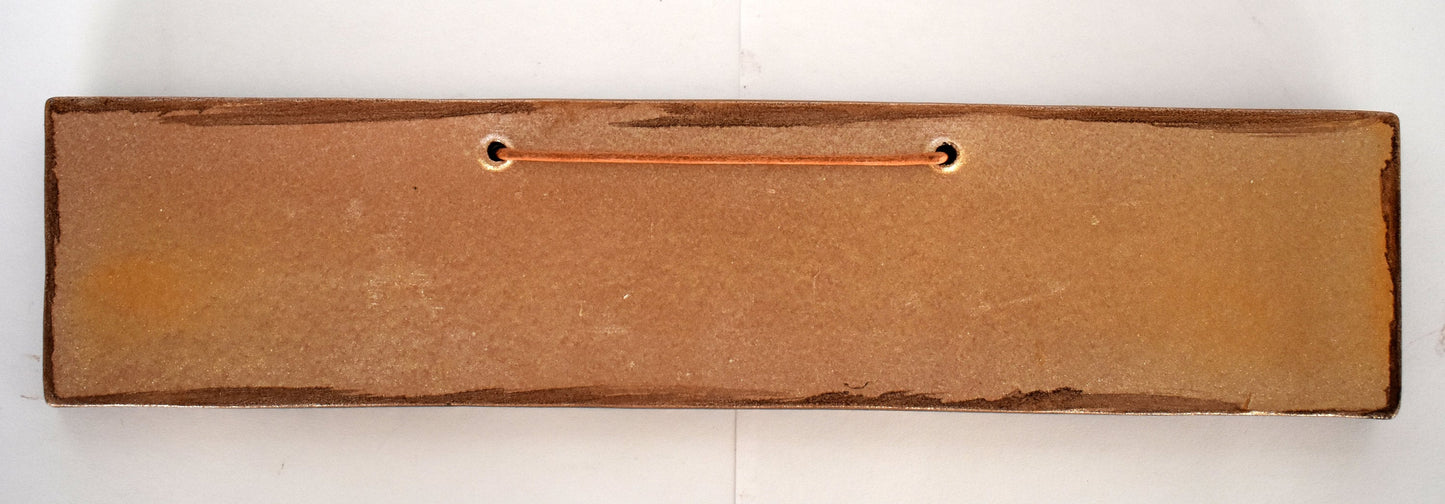Gallery Demeter
Nine Musai Muses - The goddesses of music, song and dance, and the source of inspiration to poets - Wall Decoration - Ceramic Artifact
Nine Musai Muses - The goddesses of music, song and dance, and the source of inspiration to poets - Wall Decoration - Ceramic Artifact
Couldn't load pickup availability
Details
Material:Ceramic
Condition: New, Handmade in Greece.
Height: 7 cm - 2,8 inches
Width: 30,5 cm - 12 inches
Length: 1 cm - 0,4 inches
Weight: 420 g
Muse, in Greco-Roman religion and mythology, any of a group of sister goddesses of obscure but ancient origin, the chief centre of whose cult was Mount Helicon in Boeotia, Greece. They were born in Pieria, at the foot of Mount Olympus. Very little is known of their cult, but they had a festival every four years at Thespiae, near Helicon, and a contest (Museia), presumably—or at least at first—in singing and playing. They probably were originally the patron goddesses of poets (who in early times were also musicians, providing their own accompaniments), although later their range was extended to include all liberal arts and sciences—hence, their connection with such institutions as the Museum (Mouseion, seat of the Muses) at Alexandria, Egypt. There were nine Muses as early as Homer’s Odyssey, and Homer invokes either a Muse or the Muses collectively from time to time. Probably, to begin with, the Muses were one of those vague collections of deities, undifferentiated within the group, which are characteristic of certain, probably early, strata of Greek religion.
Differentiation is a matter rather of mythological systematization than of cult and began with the 8th-century-bce poet Hesiod, who mentioned the names of Clio, Euterpe, Thalia, Melpomene, Terpsichore, Erato, Polymnia (Polyhymnia), Urania, and Calliope, who was their chief. Their father was Zeus, and their mother was Mnemosyne (“Memory”). Although Hesiod’s list became canonical in later times, it was not the only one; at both Delphi and Sicyon there were but three Muses, one of whom in the latter place bore the fanciful name Polymatheia (“Much Learning”). All the Hesiodic names are significant; thus Clio is approximately the “Proclaimer,” Euterpe the “Well Pleasing,” Thalia the “Blooming,” or “Luxuriant,” Melpomene the “Songstress,” Erato the “Lovely,” Polymnia “She of the Many Hymns,” Urania the “Heavenly,” and Calliope “She of the Beautiful Voice.” Because dancing was a regular accompaniment of song, it is not remarkable that Hesiod called one of his nine “Delighting in the Dance,” Terpsichore.
The Muses are often spoken of as unmarried, but they are repeatedly referred to as the mothers of famous sons, such as Orpheus, Rhesus, Eumolpus, and others connected somehow either with poetry and song or with Thrace and its neighbourhood, or both.
ΜΠΑΜΙΑ 141 9 ΜΟΥΣΕΣ - 3,5





